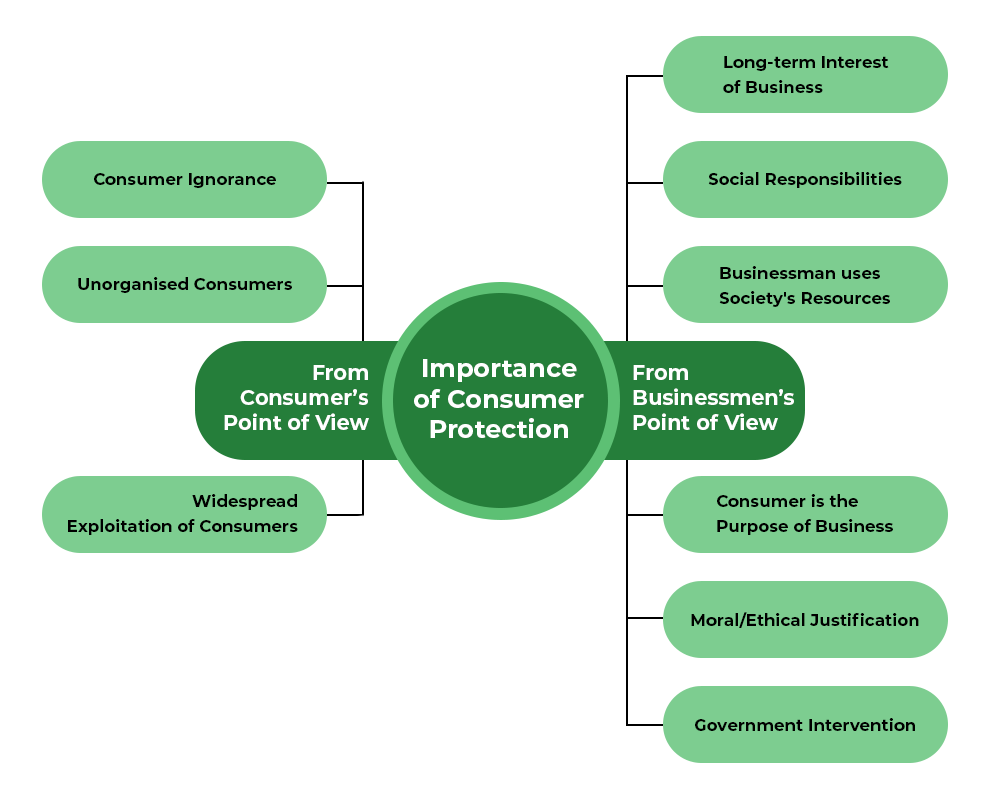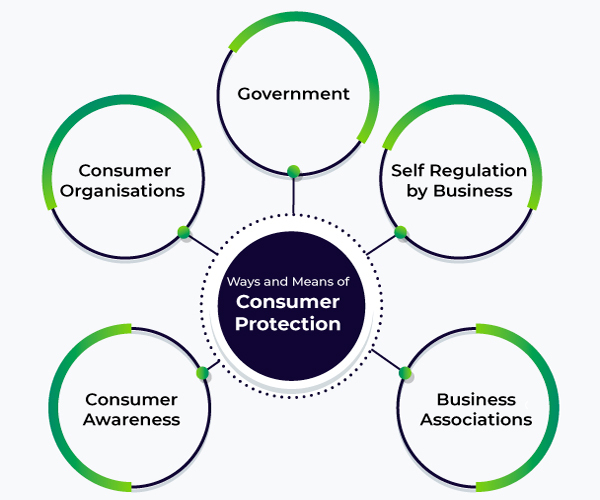The Consumer Protection Act 1986 was replaced by the Consumer Protection Bill 2019, which was introduced by the minister of food and public distribution, and consumer affairs Mr Ram Vilas Paswan in the Loksabha. The Bill was introduced on July 8, 2019. The basic aim of the Consumer Protection Act 2019 is to protect and promote the interest of consumers through inexpensive and quick redressal of their grievances. The Act is applicable in India and to all business types whether they are traders or manufacturers or whether they are supplying goods or providing services (also including e-commerce firms).
According to the Consumer Protection Act 2019, a Consumer is a person who buys any goods or avails any services for a consideration, which has been paid or promised to pay, or partly paid or partly promised, or under any scheme of deferred payment. A consumer also includes a person who is using the goods or beneficiary of service with the approval of the buyer and applies to both online and offline transactions through electronic means of teleshopping or direct selling or multilevel marketing.
Consumer Protection
A consumer is said to be the king of the market; therefore, the earlier approach, Caveat Emptor (Let the buyer beware) has been changed to Caveat Venditor (Let the seller beware). It means that, because of the fast-growing competition in the market, some businesses are involved in unfair trade practices and exploit customers, from which the customers need protection. Hence, Consumer Protection is an act that provides adequate protection to the customers against any unfair trade practices, exploitative, and unscrupulous practices of the businesses (including manufacturers and service providers).
Importance of Consumer Protection
Consumer protection is a wide concept and includes various rights, responsibilities, and remedies available to consumers. Consumer Protection is beneficial to both consumers and businessmen. The importance of consumer protection from consumers’ and businessmen’s point of view are given below:

Importance of Consumer Protection from Consumers’ Point of View
Consumer Protection is important for consumers because of the following reasons:
1. Unorganised Consumers
The consumers in developing countries, like India, are unorganised. It means that only a few consumer organisations are working in these countries to protect the interests of consumers. Consumer Protection helps consumers by encouraging the establishment of more consumer organisations. It also provides rights and powers along with responsibilities to these consumer organisations, as they can file a case on behalf of the consumers.
2. Consumer Ignorance
There are many consumers who are unaware of their rights and remedies available to them for their grievances. Consumer Protection provides the required information to these ignorant consumers and spreads awareness so that they can know about the different redressal agencies opened up for them to protect their interests.
3. Widespread Exploitation of Consumers
Even though consumers are the kingpin of the market, they face a lot of exploitation from businessmen, as they use different unfair trade practices to cheat them. Consumer protection provides protection to consumers from businessmen and their exploitation by filing a case on their behalf, providing them with various redressal, etc.
Importance of Consumer Protection from Businessmen’s Point of View
Consumer Protection is important for businessmen because of the following reasons:
1. Long-term Interest of Business
Liberalisation and Globalisation have increased the level of competition in the market so much that businesses now have to face internal as well as international competition. In this stiff competition, a business can achieve success and earn profits only when it designs the products as per the taste and preferences of the consumers and satisfies them. Businesses that ignore the requirements of consumers lose their clients and goodwill in the market. Therefore, it is essential for businesses to keep their customers’ interests in mind and satisfy them with a product or service accordingly.
2. Social Responsibilities
Every businessman has a social obligation towards different groups of society among which the customer is one of the most important groups. The businessmen are responsible for providing good quality goods at a reasonable price. Consumer protection helps businessmen by guiding them towards the provision of social responsibilities.
3. Businessman uses Society’s Resources
To produce the products and services to sell them in the market, businessmen use the resources of society. By using the society’s resources and supplying the goods and services produced from them to the members of the society, these businessmen earn profits; hence, it is their duty to do something for them in return. Consumer protection guides businessmen in using these resources for the benefit of consumers.
4. Consumer is the Purpose of Business
The basic motive of any business is to bring in more and more customers and retain them for the long term. As the customers are the foundation of business, and it is essential to retain them for as long as possible, businessmen can do so by satisfying the customers and protecting their interests.
5. Moral/Ethical Justification
Earlier, ethics was a part of the profession only and not of business. However, in present times, moral values and ethics play a great role in business also. If businessmen practice moral values and ethics toward consumers and society, then it adds to their glory and helps them increase their business, as consumers support those businesses that work ethically. Besides, people nowadays consider a business with no ethical value, criminal activity and do not allow the existence of these unethical businesses.
6. Government Intervention
The government aims at protecting the rights of consumers by intervening in business activities. Therefore, if a businessman wants to avoid such intervention, then he/she should not get involved in unfair trade practices. Besides, these kinds of interventions also spoil the image of the business; therefore, businessmen should perform activities that protect the interests of consumers.
Ways and Means of Consumer Protection

The following ways or means can help in achieving the objectives of consumer protection:
1. Self Regulation by Business
The business environment in today’s world is so competitive that business firms have realised that it is in their own long-term interest to serve the customers better. For this, various socially responsible business firms follow ethical and fair trade practices in order to protect the interests of consumers. Besides, some firms have also set up customer grievance and service cells to redress the problems of customers.
2. Business Associations
A code of conduct has been laid out by business associations, like the Confederation of Indian Industries (CII) and the Federation of Indian Chambers of Commerce and Industry (FICCI), providing guidelines to be followed by the members while dealing with consumers.
3. Consumer Awareness
Consumer awareness is essential for the customers as an educated and well-informed consumer can better raise his/her voice against the injustice to them or any unfair trade practices, or exploitation. Therefore, a consumer must be aware of his/her rights, reliefs, and responsibilities available under the Consumer Protection Act.
4. Consumer Organisations
Educating consumers regarding their rights and responsibilities is essential to protect their interests. For this, various consumer organisations, like Common Cause or VOICE play a crucial role by educating consumers and providing protection. These organisations also fight against the unfair trade practices and malpractices of businesses in order to provide relief to consumers.
5. Government
Different legislations have been framed by the Government of India for the protection of the consumers. The most important legislation among these is the Consumer Protection Act, 2019. Under this act, there is a three-tier redressal agency for the redressal of consumer grievances. The three-tier redressal agencies include District Commission, State Commission, and National Consumer Dispute Redressal Commission.
Like Article
Suggest improvement
Share your thoughts in the comments
Please Login to comment...